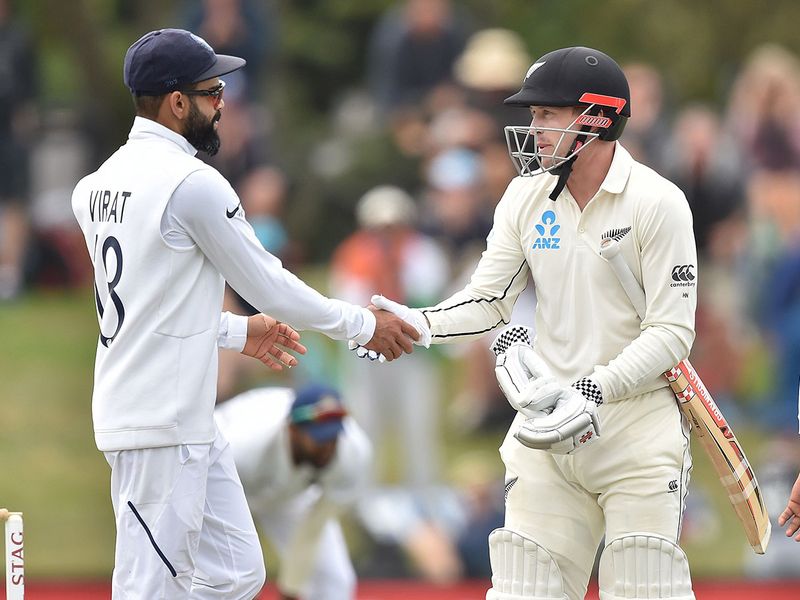Dubai: The new points system in the World Test Championship (WTC), as ammended by the International Cricket Ccouncil (ICC) this week, will add a twist to the four-Test series between India and Australia starting next month. Tim Paine’s men have now overtaken Virat Kohli & Co as the No.1 team without playing a ball – thanks to their better ‘‘precentage of points’’ from the matches played in the cycle.
Under the new system, which the ICC Board approved as per recommendations of the cricket committee headed by Anil Kumble, Australia are now the number one team with a 82.2% accrued on the basis of their 296 points from their three Test series played under the 2020-21 cycle. India, who were leading the table in the previous system with 360 points, slipped to second position due to 75% of points scored from matches at stake.
The new system, devised with an eye to determine the two WTC finalists for the title-clash at the Lord’s next June, tries to take a more ‘‘fair route’’ by working out a percentage of points scored – irrespective of the number of series each country may have played in the period under consideration. England (60.8%) and New Zealand (50.0%) are lying third and fourth, respectively, with no changes in their positions.

Image Credit: AFP
With no team now being able to rest on the cushion of their accumulated points, the onus will be on both India and Australia to work towards towards a better points percentage from the series which begins with the day-night Test in Adelaide on December 17.
An ICC release explained that the new points system is a departure from their current system which stated that matches not completed shall be treated as draws with points split. A large percentage of Test matches under 2020-21 cycle of WTC could not be completed due to the COVID-19 pandemic playing havoc with sporting fixtures all around the world.
“Both the Cricket Committee and Chief Executives Committee supported the approach of ranking teams based on completed matches and points earned as this reflects their performance and doesn’t disadvantage teams that have been unable to compete all of their matches through no fault of their own,” ICC chief executive Manu Sawhney said. “We explored a whole range of options, but our members felt strongly that we should proceed as planned with the first ever World Test Championship Final in June next year.”
While the new system has not drastically changed the standings apart from the top two, a team like New Zealand, who retain their fourth spot might see it as a better opportunity to finish in the top two. If they earn the maximum 240 points from their two home series against West Indies and Pakistan in the coming months, of which there is a great likelihood, they’ll finish with 70% points (420 out of 600). That would make them compete with England and India, who take on each other in a five-match series early next year. England, meanwhile, are trying to reschedule their postponed series against Sri Lanka.
T20 Women’s World Cup
The Board also confirmed that the ICC Women’s T20 World Cup will move from it’s current slot at the end of 2022 to February 9-26, 2023. The move follows the decision in August to postpone the ICC Women’s Cricket World Cup 2021 to 2022 meaning there would be three major events in 2022 with the Commonwealth Games in July 2022 and the ICC Women’s T20 World Cup due to be held in November 2022.
Anti-Corruption Code
The Board also approved the introduction of an Excluded Persons Policy as part of the ICC Anti-Corruption Code with immediate effect. The policy enables the ICC ACU to exclude corruptors who are ‘non-participants’ to the Code to prevent people who attempt to corrupt the sport from involvement in the game. It will also make it an offence for ‘participants’ to the Code to associate with excluded non-participants.
Sawhney added: “This is a significant addition to the ICC Anti-Corruption Code and enables the sport to impose an exclusion order on known corruptors preventing them from any involvement in cricket activities including playing, administration, financing, attendance or any kind of involvement in a league, team or franchise.
Top Five Test teams
1. Australia (82.2%) 296 points
2. India (75.0%) 360 points
3. England (60.8%) 292 points
4. New Zealand (50.0%) 180 points
5. Pakistan (39.5) 166 points


